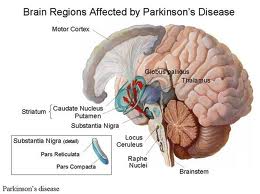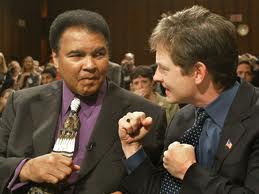Parkinson’s disease has been known to exist long time ago, but it was in the 19th century that it was clinically identified. The prevalence of Parkinson’s increases as one get older.
In spite of advances in science, what causes Parkinson’s is still unknown. What is known however, is that the disease can be triggered by a deficiency of the chemical in the brain known as dopamine.
If almost 80 percent of the dopamine is lost, it can accordingly affect the person’s ability to do smooth control movements. Dopamine which is produce by the brain, influences the initiation, planning and execution of movements.
Parkinson’s was known clinically in 1817, by a British doctor, James Parkinson through his writing entitled “Essay on the Shaking Palsy” which later called the condition as Parkinson’s disease by the French neurologist Pierre Marie Charcott in honor to the essay author who had first recognized the condition.
Parkinson’s varies significantly in individuals, because there would be no two people definitely have the same symptoms. But the three main symptoms which are used as basis of diagnosis are tremor, rigidity and bradykinesia.
Tremor is the common symptom to be noted, although 25 percent of people with Parkinson’s don’t have it. The tremor usually manifest when at rest and decreases with voluntary movements. It is usually experienced in the hands and arms.
The following problems would manifest if you have this disease:
*** Difficulty in keeping your balance.
*** Experiencing a flat speech patterns where speech often becomes soft, mumbling and monotonous in tone.
*** Lack of facial expression, you find it hard to move your facial muscles due to rigidity.
*** Deficiency in spontaneous activity, this accounts for symptoms of stooped posture, drooling of saliva and a shuffling gait.
*** Experiencing slowness or deficiency in movements.
*** Experiencing problems with their handwriting which becomes small and cramped making it difficult to read.
*** Reduced body language and loss of non verbal skills.
*** Erroneously labeled as unintelligent, uncooperative and difficult to deal with.
*** Experiencing difficulty in talking, swallowing and chewing.
Like with other brain disorders, Parkinson’s disease is at present incurable that needs attention. However, many treatments have been used. Some years ago surgeon used to insert a small needle into the brain to incise nerve cells in part of the brain that governs the symptoms of the disease.
More drug therapies have been developed to restore dopamine but none has been considered so successful due to side effects and complex nature of Parkinson’s disease.
Good management of the disease starts with an accurate diagnosis of a doctor who have a specialist knowledge of Parkinson’s disease usually a neurologist or geriatrician.

